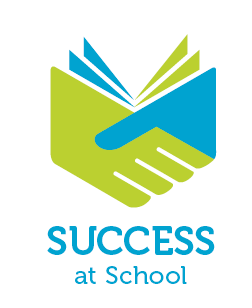Institute of Research and Information on Volunteering

 Success at school
Success at schoolInitiated by iriv together with the University of Northampton, this project is financed under the Lifelong Learning Programme, Sub-programme Comenius. The main aim of the Comenius project « Success at School through Volunteering » is to propose to youngsters living in difficult areas a pedagogical approach to enhance a voluntary involvement to succeed at school. The project gathers six countries : France, Bulgaria, Italy, Portugal, United Kingdom and Slovenia. This project was awarded first place in the selection 2012 of the Comenius projects.
School failure is a major cause of social and professional exclusion among youngsters. It is seldom to meet youngsters who would be totally opposed to school. Most of the time they are most stressed by school system because they haven’t found their place. This leads a reaction of reject and as a consequence of exclusion of the school system. Philippe Meirieu, a French pedagogue, developed the “detour strategy” to avoid this negative reaction of youngsters, proposing them other activities, beyond school, that would allow them to learn in other ways. Some school mentoring, proposed by associations outside school, is an example of such activity : youngsters are proposed different kinds of activities allowing to learn a language, mathematics or any other discipline through games or social activities. Other actions such as tutoring provided by students who have succeeded in their studies and explaining that their ‘success story’ could also be the ones of the youngsters , are other examples of actions to give self confidence and hope to youngsters who feel lost and abandoned by school.
Another way would be to propose youngsters leaving in deprived area (“jeunes des quartiers” in French) an alternative pedagogical approach based on a positive experience acquired outside school. A voluntary experience enables to acquire and/or develop skills and competences that could be most useful for pupils faced to difficulties and sometimes show them the road back to school. Volunteering is part of non formal and informal learning enhanced by the Copenhagen process. Among an association, youngsters apply theoretical knowledge learned at school, enrich their social network, acquire or develop skills and competences, exchange good practices in learning.
At the 2000 European Council in Lisbon, the Union defined the dimension of the school failure problem as : “The number of 18 to 24 years old youngsters with only lower-secondary level education who are not in further education and training”. An EU benchmark was set, that the proportion of early school leavers should not be more than 10% by 2010 (European Commission, 2006). By 2006 only six of the twenty seven Member States had met this benchmark. The average early school leaving statistic in the remaining twenty-one countries is 18%. This is nearly the double the benchmark to be reached by 2010-“ a real challenged” underlined the European Expert Network on Economics of Education (EENEE) under the direction of George Psacharopoulos (The costs of School Failure – A Fesaibility Study, June 2007). The situation is different from one country to another : in 2007, the proportion of youngsters 18-24 years having left early school was 39,2% for Portugal, 18% in Bulgaria ;13,1% in France and 13% in the UK and 5,2% in Slovenia.
The main aim of the Comenius project « Success at School through Volunteering » would be to propose youngsters leaving in difficult areas a pedagogical approach to enhance a voluntary involvement to succeed at school. The SAS project would propose pedagogical sessions to youngsters around topics allowing them to value learning, to build a path with school between knowledge acquired through volunteering and knowledge required at school. These sessions would be supported by a pedagogical mentoring in order for pupils to be aware of their potential, to value the non-formal and informal learning and find a way back to school.
The main expected results are :
1st of October 2012- 30th of September 2014